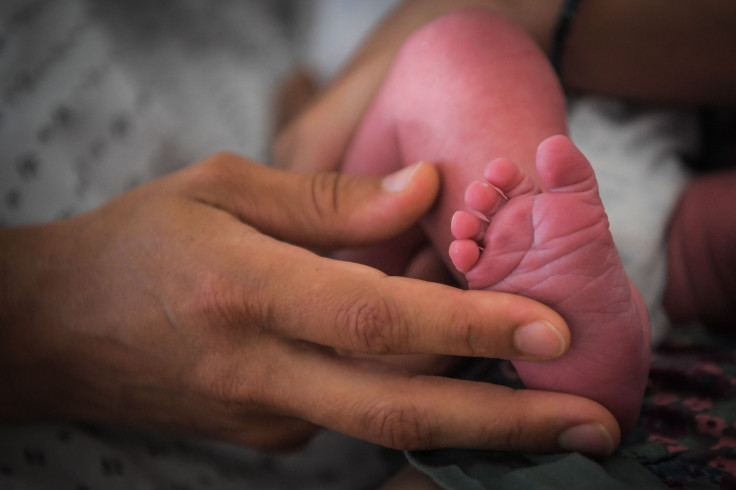What Is Moebius Syndrome? 3-Year-Old With Rare Condition Can't Make Facial Expressions

A Kansas mother is trying to raise money for surgery to bring a smile on her three-year-old daughter’s face who is suffering from a rare condition that prevents facial expressions.
Rachel Butler, 27, delivered her daughter, Ava, via C-section in July 2015. Just a few hours after her birth, doctors noticed something wrong as the baby displayed feeding difficulties. She was immediately admitted to neonatal intensive care unit (NICU) and diagnosed with Moebius Syndrome three days later. This rare condition affects muscles that control eye movement and facial expression.
According to National Organization Of Rare DIsorders, Moebius syndrome is characterized by weakness or paralysis of multiple cranial nerves and prevents a person from smiling, frowning, raising the eyebrows, or closing the eyelids. The symptoms vary from person to person, however, basic diagnostic criteria include expressionless face, voice abnormality and feeding difficulties in infancy. Some infants also exhibit crossed eyes and also drool excessively. Though the exact causes remain unknown, it could be from a combination of genetics and environmental factors.
This revelation took Butler by shock, who did her own research on the condition. Now after three years, she has come in terms with her daughter’s condition. She has now vowed to raise awareness about the condition as well as raise money for Ava’s surgery.
“I was completely and utterly overwhelmed. I already didn’t know what I was doing as a new parent but throwing this diagnosis on top of it really put me through the ringer. They handed us a pamphlet about Moebius Syndrome, but we had questions that the specialists couldn’t answer,” Butler said, Yahoo 7 reported Sunday.
“I remember processing the diagnosis a few days later when I was finally by myself. I finally got the courage to do my own research and I sat in there for almost an hour ugly crying. I got myself together and walked out of the room and just held Ava. I think we were at an advantage seeing as though this was our first child so anything we experience would be our normal,” she added.
Butler added that she knew something was wrong and different about Ava from the time she saw her in NICU. “But we were relieved to have some answers, so we could start her plan of care. We get a lot of questions from little kids who notice Ava’s facial features and we understand where they are coming from. It’s the comments from the adults that really got to me,” she said.
“At first they caught me off guard. Now we try and answer their questions so it’s a positive experience for everyone. Not sure if this is appropriate or not but it’s honest and I feel that other special-needs parents have felt the same way where they just want to throat-punch the person making an ignorant comment. But we must realize our kids are watching everything we do and the way we react now is how they will react later,” Butler added.
“There is so much to look forward to and for that we are so lucky. She’s so smart and such a spitfire that we know she’ll be able to handle herself when the time comes. My favorite thing right now is watching her make friends in her class and interacting with her peers,” she said.
© Copyright IBTimes 2024. All rights reserved.




















